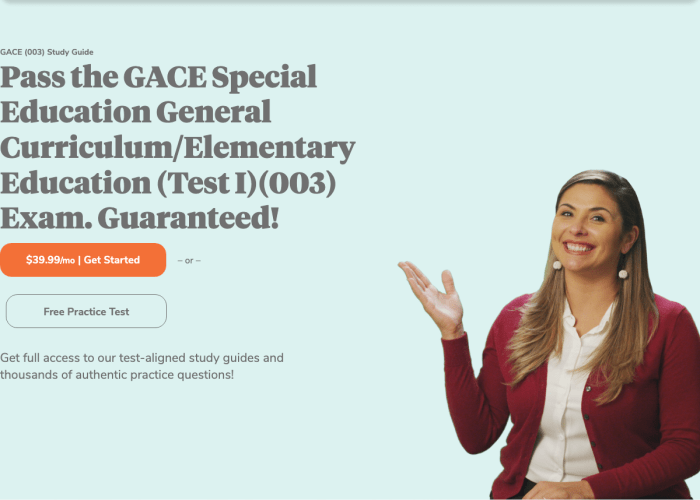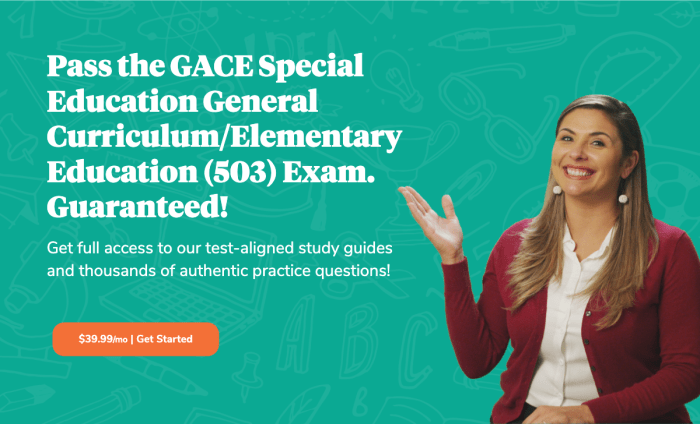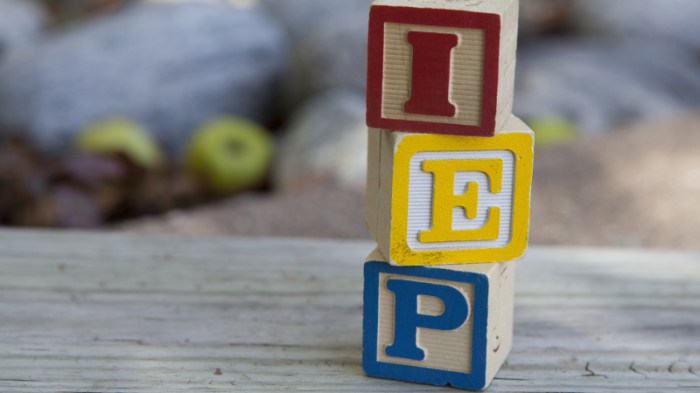The GACE Special Education General Curriculum Practice Test is an essential tool for aspiring special education teachers. This practice test provides a comprehensive overview of the general curriculum for special education students, ensuring that candidates are well-prepared for the actual exam.
It covers a wide range of topics, including the purpose and structure of the general curriculum, principles and practices that guide its development, and best practices for differentiating instruction for special education students within the general curriculum.
This practice test is designed to help candidates identify their strengths and weaknesses, allowing them to focus their studies and improve their chances of success on the actual exam. It also provides valuable insights into the types of questions that candidates can expect to encounter on the exam, helping them to develop effective test-taking strategies.
General Curriculum Overview
The general curriculum for special education students is designed to provide access to the same content and skills as their general education peers. However, it is adapted to meet the unique needs of special education students, who may have disabilities that affect their learning.
The general curriculum for special education students is based on the same principles and practices as the general curriculum for general education students. These principles include:
- Individualized instruction: The curriculum is tailored to meet the individual needs of each student.
- Differentiated instruction: The curriculum is presented in a variety of ways to meet the different learning styles of students.
- Multisensory instruction: The curriculum is presented using a variety of senses to help students learn.
- Assistive technology: Assistive technology is used to help students with disabilities access the curriculum.
The general curriculum for special education students is also adapted to meet the specific needs of students with disabilities. These adaptations may include:
- Modifications: Changes to the curriculum that make it easier for students with disabilities to access and understand the content.
- Accommodations: Changes to the way the curriculum is presented or assessed that allow students with disabilities to participate fully in the learning process.
The general curriculum for special education students is an important part of their education. It provides them with access to the same content and skills as their general education peers, and it is adapted to meet their unique needs.
Special Education Considerations

When developing the general curriculum for special education students, it is important to consider their unique learning needs. These needs may include:
- Cognitive disabilities: Students with cognitive disabilities may have difficulty with learning, problem-solving, and memory.
- Physical disabilities: Students with physical disabilities may have difficulty with movement, coordination, and fine motor skills.
- Sensory disabilities: Students with sensory disabilities may have difficulty with hearing, vision, or touch.
- Emotional disabilities: Students with emotional disabilities may have difficulty with managing their emotions and behavior.
- Autism spectrum disorder: Students with autism spectrum disorder may have difficulty with social interaction, communication, and repetitive behaviors.
It is important to note that not all special education students have all of these needs. Some students may have only one or two of these needs, while others may have several. It is important to assess each student’s individual needs and develop a curriculum that meets those needs.
Assessment and Evaluation

Assessing the progress of special education students in the general curriculum can be challenging. This is because students with disabilities may have difficulty with traditional assessment methods, such as standardized tests.
There are a variety of different assessment methods that can be used to evaluate the progress of special education students in the general curriculum. These methods include:
- Portfolio assessments: Portfolios are collections of student work that can be used to assess their progress over time.
- Performance assessments: Performance assessments are tasks that students complete to demonstrate their skills and knowledge.
- Authentic assessments: Authentic assessments are tasks that are based on real-world situations.
It is important to use a variety of assessment methods to get a complete picture of a student’s progress. It is also important to consider the student’s individual needs when selecting assessment methods.
Collaboration and Communication: Gace Special Education General Curriculum Practice Test

Collaboration between special education teachers and general education teachers is essential for the successful implementation of the general curriculum for special education students.
Special education teachers can provide general education teachers with information about the unique learning needs of their students. This information can help general education teachers to adapt the curriculum and instruction to meet the needs of all students.
General education teachers can provide special education teachers with information about the general curriculum and the expectations for students. This information can help special education teachers to develop individualized instruction plans for their students.
Parents and caregivers also play an important role in the development and implementation of the general curriculum for special education students. Parents and caregivers can provide information about their child’s strengths and weaknesses. They can also provide feedback on the curriculum and instruction.
Effective communication between special education teachers, general education teachers, parents, and caregivers is essential for the successful implementation of the general curriculum for special education students.
Resources and Supports

There are a variety of resources and supports available to special education teachers and general education teachers to help them develop and implement the general curriculum for special education students.
These resources include:
- Curriculum guides: Curriculum guides provide teachers with information about the general curriculum and the expectations for students.
- Instructional materials: Instructional materials include textbooks, worksheets, and other materials that can be used to teach the general curriculum.
- Assistive technology: Assistive technology can be used to help students with disabilities access the curriculum.
- Professional development: Professional development opportunities can help teachers learn about new strategies and techniques for teaching students with disabilities.
These resources can help special education teachers and general education teachers to provide effective instruction to all students.
Frequently Asked Questions
What is the purpose of the GACE Special Education General Curriculum Practice Test?
The GACE Special Education General Curriculum Practice Test is designed to help aspiring special education teachers prepare for the actual exam by providing a comprehensive overview of the general curriculum for special education students.
What topics are covered on the practice test?
The practice test covers a wide range of topics, including the purpose and structure of the general curriculum, principles and practices that guide its development, and best practices for differentiating instruction for special education students within the general curriculum.
How can I use the practice test to improve my chances of success on the actual exam?
By utilizing the practice test, candidates can identify their strengths and weaknesses, allowing them to focus their studies and improve their chances of success on the actual exam.